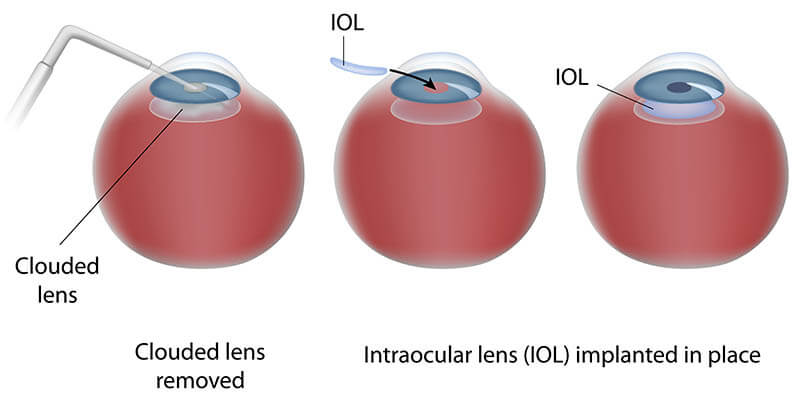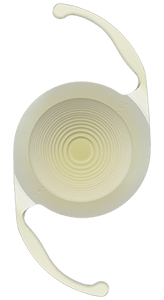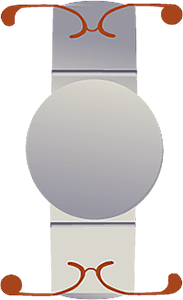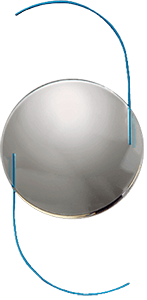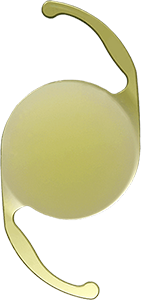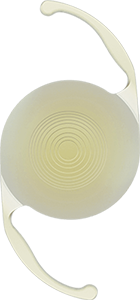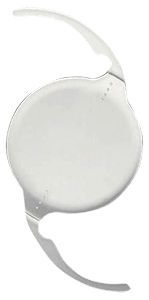Cataract
What Are Cataracts?
As we age, our eyesight naturally becomes blurry or foggy. This is extremely common and can happen for a number of reasons, but is most often attributed to the development of cataracts. Cataracts are extremely common and are responsible for about 51% of blindness worldwide – but what, exactly, are they?
Cataracts are protein deposits that form inside the natural lens of the eye, causing blurriness and distortion in vision. They are associated with age, and almost everybody experiences them later in life. As a cataract develops, less and less light is let through the eye, eventually causing blindness.
Because cataracts develop slowly over a period of years, most patients do not notice an apparent change in their vision at first. In most cases, our physicians at Bowden Eye & Associates will discover cataract development before the patient even notices. Attending regular eye examinations allows our physicians to keep close watch of cataract development, helping to determine when it is time for cataract surgery.
Before cataract surgery, many patients find that eyeglasses or contact lenses help improve vision. However, this is only a temporary fix. As cataracts mature, it becomes impossible to correct vision with prescription glasses or contact lenses, making cataract surgery necessary.
While cataracts have the potential to cause blindness, they are treatable at all stages of development. The only effective treatment available for cataracts today is through cataract surgery. Cataract surgery is one of today’s most common eye surgeries, with great success rates. Cataract surgery has made many advances over the years and is now one of the safest and most effective procedures we perform here at Bowden Eye & Associates.
Getting Ready for Cataract Surgery
As previously mentioned, cataract surgery is one of today’s most common eye surgeries. Rest assured, the success of this procedure is amazing! If it has been determined that you will need cataract surgery, you will consult with one of our physicians here at Bowden Eye & Associates. Our Physician’s Counselors will also talk to you about the process and make sure you have everything you need in preparation for surgery. You will also need to have a discussion with one of our physicians about what type of lens implant you wish to proceed with. There are so many options and some even allow you to get rid of the cataract as well as drop dependency on glasses or contacts afterward!
Our Physicians’ Counselors will review all the insurance coverage with you and if any fees will be accrued after insurance coverage. Please note that it is important to get proper consultation on intraocular lens implants, as this could play a major role in how you see after cataract surgery. Once your cataract surgery is completed, there is currently no way to replace that lens. If you chose the standard lens option, rather than the lens option allowing you to proceed without glasses after surgery, there is no way to later in life replace that. We are here to answer any questions you have and want you to proceed with surgery with excitement. It is an exciting time to strengthen your vision.
Top 3 Things to Consider Prior to Cataract Surgery
Determine who will be your cataract surgeon.
Bowden Eye & Associates offers one of the best cataract surgeons in North Florida and South Georgia. He is also Cornea Specialist who operates with only the best technology.
Dr. Bowden is ready to help you improve
your vision!
Get proper consultation on intraocular lens implants.
You will have options for monofocal lens implants (which are significantly covered by Medicare) and premium lens implants that will enable better vision after surgery. (Additional fees apply for premium lens implants) Once you proceed with the lens option, there is no current surgery process that allows you to reverse that decision.
Determine your after-surgery care plan.
Each patient having surgery requires finding someone to drive them afterward. You must also discuss with Bowden Eye & Associates regarding the plans for your post-surgery evaluation, which is usually the next day, as well as preparation to take your drops for superior results.
Understanding Premium Lens Implants
Modern-day lens implants for cataract surgery have been significantly improved over the last ten to twenty years. Prior to the advent of premium lens implants or multifocal IOLs, a cataract surgery patient had one option. This one option was a monofocal lens implant, which could only correct vision at one distance. Now, patients have the options for multifocal and accommodating lens implants that can correct vision at near, far, and intermediate distances. Some patients that receive this lens implant can even eliminate glasses from their lifestyle. Intraocular lenses come in a variety of materials and designs. Your cataract surgeon will be able to advise you on what type of lens would be best for your unique visual situation.
The lens options we offer are:
- Toric
- Trulign
- Tecnis
- Envista
- Light Adjustable Lens™
- Akreos
Common Cataract Questions
It is very normal for someone to have questions and concerns going into cataract surgery. This is precisely the reason we have an entire page on this website dedicated to cataract FAQs. Here are a few questions listed below and if you have more questions please feel free to visit our page regarding cataract FAQs.



